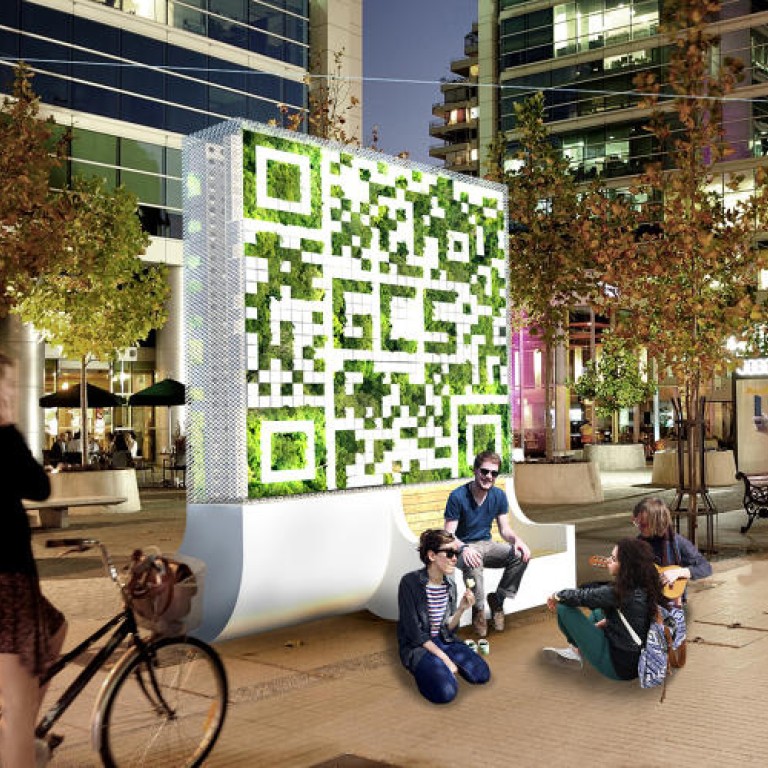
Moss culture filter system could 'eat up' Hong Kong's roadside pollution, says German start-up
German start-up says street air filter that feeds on particulate matter would help clean city's air
A German start-up hopes a specially designed street air filter made of a moss culture that "literally eats" airborne pollutants passing through could provide Hong Kong with an answer to its roadside air quality woes.
The Dresden-based company says the moss culture feeds on pollutants - particulate matter (PM) and nitrogen oxides (NOx) - and bio-digests them within 24 hours, cleansing air and reducing heat by up to 17 degrees Celsius within a five-metre radius.
"It could be crucial for a city, where most pollution comes from roadside sources," said Dénes Honus, CEO and co-founder at Green City Solutions. "Air pollution costs Hong Kong billions of dollars in economic losses each year and the current solutions to it are quite indirect."

This equates to a reduction of about 240 tonnes of carbon dioxide equivalents (CO2e) annually by binding NOx, ozone and up to 89.2kg of particulate matter in the same period.
Polluted air flows through the green moss wall and is absorbed into the soil, which feeds on it.
The moss basically thrives on nothing but minimal water, nutrients and salt, Honus said. A solar-powered electrochemical sensor embedded in the system feeds real-time information that is accessible via the internet.
Targeted at municipal governments and developers, the system will cost a hefty €25,000 (HK$206,000), but Honus said the low-maintenance - less than five hours a year - made the system a more cost-efficient strategy than planting hundreds of trees for the same effect.

The system's green features also give it aesthetic appeal and it is designed to incorporate two park benches.
Other plants can be planted into the wall and it can also feature corporate designs, LED screens and logos or images schemes can also be applied.
"Ideally, we see it used as part of an air purification infrastructure," he said. "If you have an entire network, you can increase the capacity and improve the air quality of a whole neighbourhood."
The start-up, which has been selected for an accelerator programme for smart cities under Infiniti Motors and venture capital firm Nest, says initial reception from local government officials has been fairly positive.
The technology was developed over 10 years at the Dresden University of Technology and Humboldt Universitat Berlin.

